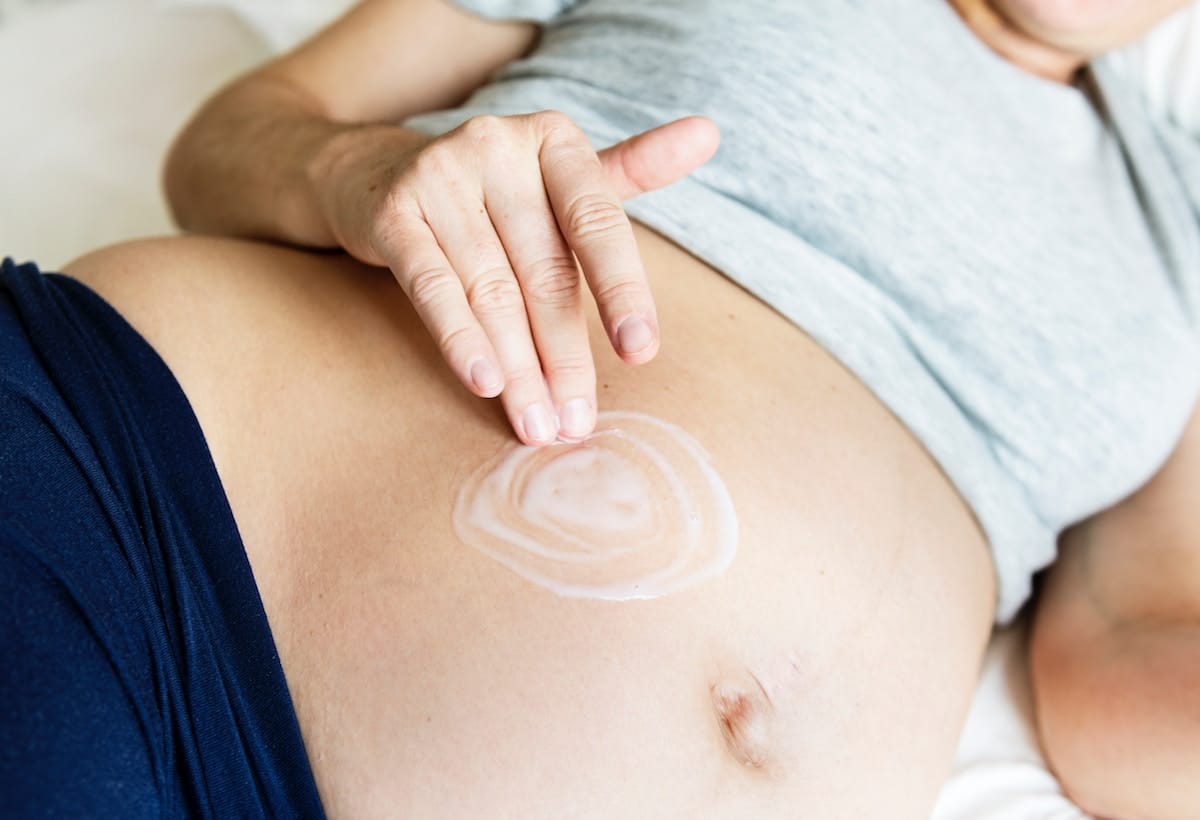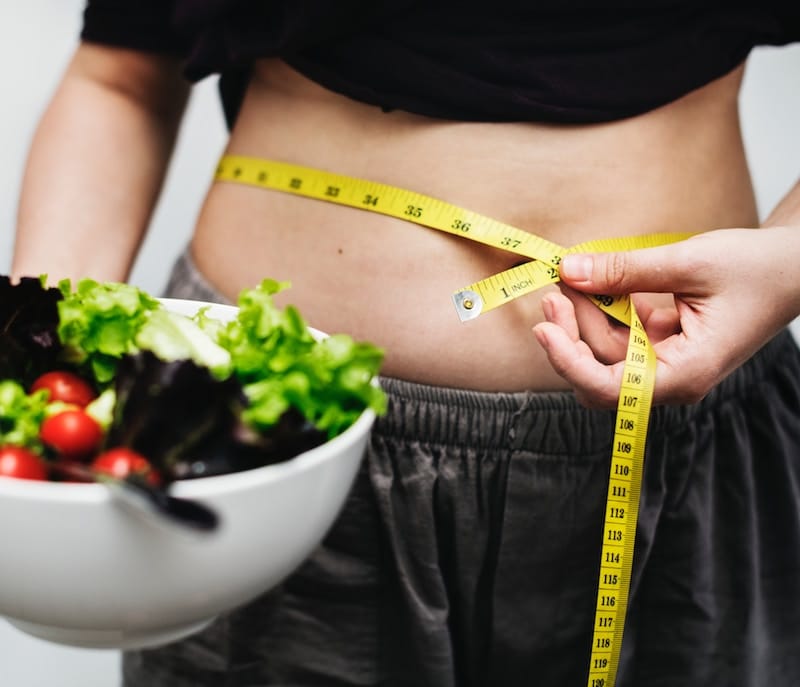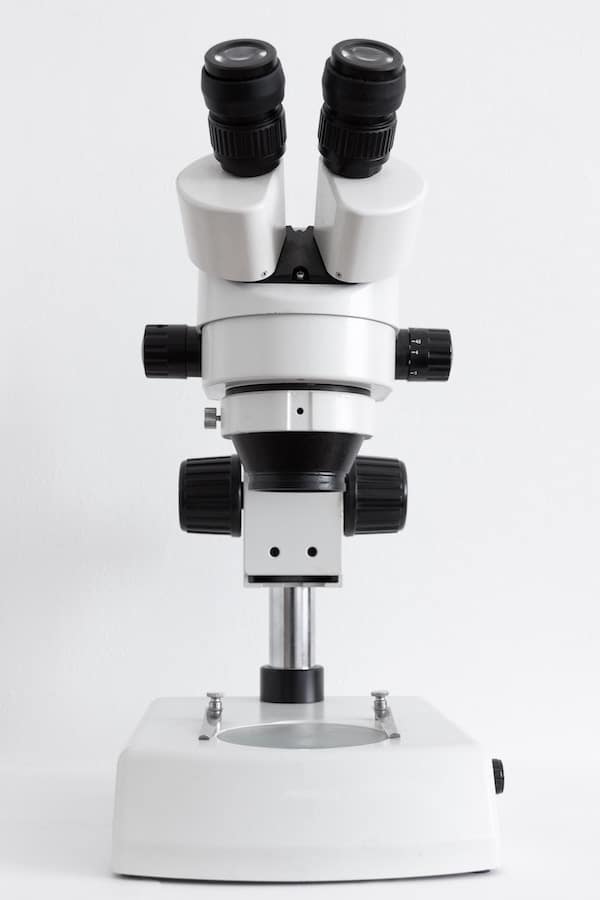We review the research and discuss whether a low carb pregnancy causes birth defects in babies and if its safe to go keto while pregnant?

Low-carb diets have been making headlines in nutrition ever since Robert Atkins released his diet plan in 1989. These diets promise speedy weight loss on a diet high in protein and fat, and low in carbs. As a result, we’ve seen the rise of the mighty steak-and-salad combo, with carbs quickly replacing fat as the mega-villain in the battle of the bulge. Since then the paleo diet (high protein and fat) and the keto diet (moderate protein and high fat) have taken center stage, backed by ample glowing celebrity endorsements.
The keto diet in particular has been the subject of great scientific interest for its potential effects on a variety of health concerns, from obesity and diabetes to Parkinson’s and cancer. Recently, the documentary The Magic Pill came out, singing praises for the keto diet (if you want to know my thoughts on The Magic Pill you can read all about it in my part 1 and part 2 reviews). Considering the long-standing popularity of going low-carb, what does this mean for expecting mamas? Is it safe to ditch the carbs while preggers? Well, a new study published by researchers at the University of North Carolina suggests that a low carb pregnancy may not be great news for expectant mothers and their babies. Let’s dive into the research!
Can a low carb pregnancy Cause Birth Defects?
This study compared the diets of mothers whose babies suffered neural tube defects (NTD) with the diets of mothers who had healthy babies. The results? Researchers now have reason to believe that mothers following a low carb pregnancy diet have as much as a 30% increased risk of their babies developing a neural tube defect. Why? Well, the key player could very well be folate – a B-vitamin found in fortified flour, legumes, and leafy green vegetables.
Folate & Risk of Neural Tube Defects

Folate is a critical nutrient for cell division and growth, and is especially important in producing healthy new copies of our DNA. If folate levels are low during pregnancy (particularly during the first four weeks of gestation), the result could be neural tube defects, such as spina bifida or anencephaly. During those first four weeks of pregnancy, the neural tube (which later becomes the brain and spinal cord of the baby) develops and closes, with folate playing a vital role in the process.
In 1995, neural tube defects affected 1 out of every 1000 births, and the outlook for babies with neural tube defects is grim. Spina bifida results in various types of permanent paralysis in the legs, and babies born with anencephaly are either stillborn or die shortly after birth. But fortunately, this is where public health policies can jump in and save the day! Since 1998, folic acid (the stable form of folate that’s used in supplements), has been added to all white flour, cornmeal and pasta in North America. Amazingly, this enrichment of grains has lead to the incidence of neural tube defects dropping by half. However, without consuming fortified grains or folate-rich legumes, expectant mothers eating for a low carb pregnancy (such as eating Keto or Atkins) could be missing out on adequate levels of folate, and thereby increasing the risk of their babies having birth defects.
BACK to the Study. Over 13 years, North Carolina researchers looked at data from over 11,000 mothers: 1740 mothers of children with neural tube defects and 9545 mothers of healthy children. The researchers used questionnaires to examine and compare the diets of mothers from these two groups, paying special attention to their consumption of carbs and folate, and whether or not they had taken folic acid supplements before their babies were conceived. They found that mothers eating for a low carb pregnancy had less than half the average intake of folic acid than those mothers who didn’t restrict carbs in their diets. Even more alarming was the finding that women who had a low carb pregnancy were 30% more likely to have a child with a neural tube defect.
Risky Behaviour & Risk of Neural Tube Defects

The researchers also found out a few more interesting facts about those mothers cutting carbs – on average, they were older, more likely to be overweight, and more likely to have smoked while pregnant. They were also quite a bit more likely to have consumed alcohol early on in their pregnancy (which, as you’ll remember, is the critical time for proper development of the neural tube!). This suggests that women who limit their carbs may be a little more likely to engage in risky behaviours, complicating the story somewhat.
We then have to question where it these women’s low carb pregnancy that puts them at risk, or their slightly higher tendencies to smoke or drink while pregnant? The researchers adjusted their analysis to account for these other risky behaviours, and still found that low-carb mothers were at a higher risk of neural tube defects in their pregnancies. Still, to get the full story here, it would be important to tease out what types of diets were being followed during the low carb pregnancy, and why. For example, some of the women may have been cutting carbs to lose weight, while some may have been following a paleo or keto diet with health concerns in mind. Still, others may have cut out fortified flour and pasta due to celiac disease or concerns over gluten sensitivity.
Planned Pregnancies & Risk of Neural Tube Defects
Another interesting finding was that women who had planned their pregnancies didn’t experience an increased risks of neural tube defects, even if they were on a low carb diet. Perhaps they ate healthier foods (with more folate-rich leafy greens), or took folic acid supplements, in anticipation of getting pregnant. This speaks to the importance of determining what type of low carb diet is being followed, and suggests there’s more to the story than simply how much fortified cereal or other carbs a pregnant woman eats.
On the other hand, women who had unplanned pregnancies wouldn’t have had the chance to ensure they were getting enough folate or folic acid during those first critical four weeks of pregnancy, and by the time they found out they were pregnant, it could very well have been too late. This is where the beauty of enriching flour and pasta comes in: it helps ensure all women of childbearing age are getting enough folic acid, whether they’re pregnant, planning to get pregnant, or none of the above!
Study Limitations

Despite the helpful insights on the risks of a low carb pregnancy, the University of North Carolina study had a few flaws to consider:
Study Flaw #1: Use of Food Frequency Questionnaire
Information about what the mothers ate before their babies were conceived was gathered using a Food Frequency Questionnaire (FFQ), which asks subjects to describe how often they ate a specific food within a given number of weeks or months. The disadvantage of the FFQ is that it relies on memory and people may have a hard time accurately recalling what they ate. As a result, they may be more likely to over- or under-report the foods they ate.
Study Flaw #2: No Measure of Blood Folate Status
The study didn’t measure biomarkers of folate status in the blood. In other words, they estimated how much folate each mother was getting based on her reported diet, but they didn’t check to see just how much folate was actually circulating in her blood. This would have been a really important measure to truly connect the dots between low carb diets, folate, and neural tube defects, in a more meaningful way. Flour is fortified with folic acid, which happens to be the same form of folate used in supplements, which begs the question: why didn’t supplementation help to decrease the risk of neural tube defects? Perhaps women avoiding carbs (fortified flour in particular) had such low levels of folate to begin with that even a supplement failed to get them to healthy levels. And perhaps women consuming plenty of fortified flour had high enough levels that additional supplementation made no difference. Without looking at their blood levels of folate before conception, it’s hard to draw any strict conclusions.
Study Flaw #3: No Cause and Effect
Lastly, this study showed an association between low carb diets and neural tube defects, but that still doesn’t prove that shunning grains and going on a low carb pregnancy diet causes birth defects!
Bottom line
So what does this all mean for women trying to conceive? There are a few important takeaways. First of all, folate (as dietary folate, or supplemental folic acid) is a critical nutrient during pregnancy, especially when it comes to reducing the risk of neural tube defects. The best way to ensure you’re getting adequate amounts of any nutrient is to eat a varied diet. In fact, with the exception of a few specific foods, Health Canada doesn’t advise expectant mothers to restrict any foods or food groups. It’s also important to remember that pregnancy is certainly not the time to start any kind of weight-loss plan (low-carb or not!), unless recommended by and under the supervision of a doctor.
A final takeaway from this study is that mothers with planned pregnancies had no increased risk of having babies with neural tube defects, whether or not they restricted their carbs for a low carb pregnancy. It’s safe to assume that’s because women trying to conceive usually go to extra lengths to get healthy, by getting in their prenatal vitamins. This shows how important it is for all women of childbearing age to ensure they’re getting enough folate, and it’s the reason Health Canada recommends a daily supplement of 400 micrograms for all women who fit this description. For women who follow a low-carb diet, Health Canada actually recommends a higher dose of folic acid, again under the supervision of a doctor (most prenatal vitamins contain 800-900 micrograms). As for the die-hard low-carbers out there who plan on eating for a low carb pregnancy, there are still plenty of foods that naturally contain high levels of folate: leafy greens (like spinach, asparagus, romaine lettuce), liver, avocado and sunflower seeds, among others. So it’s possible to not have your cake and eat your folate too!
Written by RD2B Adam Weinmann
More blog posts you might like:
If you liked this blog post about about the risks of a low carb pregnancy then you might also enjoy more blog posts on pregnancy and the keto diet:
- Dangers of Dieting During Pregnancy On Baby’s Risk of Obesity and Disease in Adulthood
- How the Gut Microbiome Helps Build Baby’s Immune System (Dietitian’s Evidence Based Guide)
- Is a Vegan and Vegetarian Diet Safe During Pregnancy?
- Does Going Gluten Free During Pregnancy Reduce Baby’s Celiac Disease Risk?
The Keto Diet – What This Dietitian Actually Thinks About a Ketogenic Diet for Weight Loss Is it Safe to Breastfeed on the Keto Diet & How Does it Affect Breastmilk?
Updated on September 27th, 2021

Abbey Sharp is a Registered Dietitian (RD), regulated by the Ontario College of Dietitians. She is a mom, YouTuber, Blogger, award winning cookbook author, media coach specializing in food and nutrition influencers, and a frequent contributor to national publications like Healthline and on national broadcast TV shows.







Bev says
While the word folate is related to the word foliage, the richest source of folate is NOT any plant-based food. Ounce for ounce, ORGAN MEATS such as beef liver and chicken liver NATURALLY contain quite a bit MORE folate than any plant food, including those “enriched” cereal grain products!
All of the data below comes from Nutritondata.self.com, so please feel free to check my numbers.
100 g of raw beef liver contains 290 µg of folate.
100 g of chicken liver contains 588 µg of folate.
Meanwhile,
100 g of ENRICHED white all-purpose wheat flour contains a mere 183 µg of folate.
And, it only has that much folate because, in 1996, the U.S. government decreed that 140 µg of folic acid (a synthetic form of folate) had to be ADDED to every 100 g of enriched cereal grain product sold!
But perhaps you’re thinking, “I don’t eat pastas or bread or anything else made from processed white flour. I always choose whole wheat products which has more nutrients so, of course, I get MORE folate. Right?” Wrong!!!
100 g of whole-grain wheat flour contains only 47 µg of folate!
That’s because whole grain wheat flour is not an “enriched” cereal product and therefore is NOT required to have folic acid ADDED to it.
If folate deficiency is a concern, it seems to me that the advice OUGHT to be “go back to eating organ meats which naturally contain the highest levels of natural folate!” Instead, the standard advice is “increase your carbohydrate intake” and this advice is given ONLY BECAUSE enriched cereals have folic acid added to them.
This MIGHT make sense if folic acid were added to enriched products at levels equal to or greater than the amounts naturally found in organ meats. But, it simply isn’t. At best, when it comes to folate, enriched cereal products are a poor SUBSTITUTE for chicken liver or beef liver.
And worse, having heard the phrase “healthy whole grains” all their lives, many people are going to THINK (erroneously) that whole grain products must have even more folate (and other nutrients) than the “enriched” (but highly processed) cereal products do so they’ll interpret the advice to eat more carbohydrates as meaning they should eat more whole-grain products. So they’ll increase their carb load – with any attendant glycemic load and insulin issues – while NOT increasing their folate intake.
Finally, if one just does not like organ meats, and I’ll grant that many people don’t care for their strong flavor, there are MUCH better plant based sources of folate than cereal grains (whether enriched or not).
100g of raw spinach contains 194 µg of folate. While that is just 2/3rds as much as beef liver and only 1/3rd as much as chicken liver, it still exceeds the amount found in ENRICHED white wheat flour and is nearly 4 times the amount found in whole grain flour.
BTW, every single low-carber I know avoids grains (enriched AND whole grains!) but most eat spinach 2 to 5 times per week, often as salad greens or blended into their omelets! I doubt any of them are suffering from a folate deficiency.
Anne Clarkin says
Exactly!
Deborah Brooks says
This is most likely a heated topic for some. It is really important for pregnant women to speak to their Dr’s to determine the best diet for them.
Abbey Sharp says
Yes, for sure.
rebecca says
I appreciate how you structure these types of posts- how you include the limitations! It’s fascinating how they saw the connection between low CHO diets & other risky behaviors. sooo interesting! thanks for sharing!
Abbey Sharp says
Yes, so much research in this area. Thanks for reading 🙂
GiGi Eats says
So here’s the deal. I am on a keto/paleo diet (for health reasons) and I have been for the last 17 years of my life. I was told I could not get pregnant, ALAS – I am pregnant now! When I got pregnant I immediately started taking Pre-Natal Vitamins (that contain folate because I cannot take folic acid) I have also been loading up on other vitamins and minerals that I know are great for my son’s growth and development. That being said, I only eat 2x a day. And I eat a very high fat, high protein, minimal carbohydrate diet – which means: no breads, rices, etc. The only carbohydrate I eat is sweet potatoes and not every day. My doctor has continually told me that my baby is very healthy and everything looks good. When I did the glucose test (I actually did NOT drink the syrup stuff – I went in 3 days in a row and brought my lunch with me)… My blood sugar was lower POST MEAL vs. PRE MEAL, but again, baby is still A-OK. I am 31 weeks now, measuring a tiny bit behind (because I am a small person) but I keep getting told that my babe is A OK. So I honestly can say that, there is really truly no one size fits all when it comes to ANYTHING!
Abbey Sharp says
Hey GiGi! Thanks so much for sharing. I totally agree. Every single person is unique, and the research shows that there is no clear cut answer on what works for everyone. So excited to meet your babe (through my computer i guess lol)